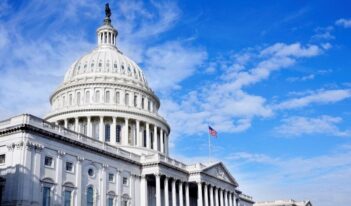
Regulatory news in review
- Following the nuclear threat in Japan, members of Congress have renewed debate over options to control spent radioactive fuel rods from nuclear power plants in the United States. Some want to revive a project to store the rods in Yucca Mountain, but President Obama and Senate Majority Leader Harry Reid (D-NV) have expressed opposition to it.
- Senator Susan Collins (R-ME) introduced the Clearing Unnecessary Regulatory Burdens (CURB) Act. The bill would require federal agencies to follow new procedures before issuing significant guidance documents, and would legislatively impose cost-benefit analysis requirements for taking significant regulatory actions. See related The Regulatory Review essay.
- The Federal Reserve, the independent agency in charge of American monetary policy, announced that it will begin to hold regular press conferences in an effort to garner public support following the financial crisis.
- The federal government held an Open Government Research and Development Summit on March 21st and 22nd. Professor Cary Coglianese of the Penn Program on Regulation participated in a panel discussion about citizen engagement in government operations. The main goal of the summit was to discuss the questions that researchers should pursue to determine which open government initiatives would be most effective.
- The Food and Drug Administration (FDA) recently approved Yervoy, the first drug proven to extend the lives of patients with late-stage melanoma. Yervoy extends patients’ lives by blocking an antigen that diminishes the immune system’s ability to destroy cancer cells.
- The FDA rejected requests to hold a hearing on a 2005 final rule that approved using ionizing radiation to sanitize food-borne pathogens on shellfish.
- Members of Congress from the American Northwest are attempting to block FDA approval of genetically-modified salmon, which they argue will contaminate wild salmon stock. The FDA has approved genetically modified plant crops, but this would be the first time the agency would approve a genetically-modified animal for human consumption.
- An advocate general to the Court of Justice of the European Communities, the highest European Union court, recommended forbidding online advertisers from placing ads beside search results for the names of their competitors.
- The Environmental Protection Agency contacted more than 2,800 people who purchased an ant-control product that contains mirex, a banned chemical that is known to cause skin, liver, reproductive, and nerve damage. The EPA warned purchasers about the product’s dangers and explained to them how to dispose of it safely. Purchasers obtained the product online from producers in China.
- The United States Agency for International Development (USAID) proposed a rule that would allow recipients of its funds to use them to purchase, build or rehabilitate buildings used for religious activities. Under the agency’s revised interpretation of the Establishment Clause, such funding is considered constitutional as long as funding criteria are religiously neutral and funds are made generally available.



